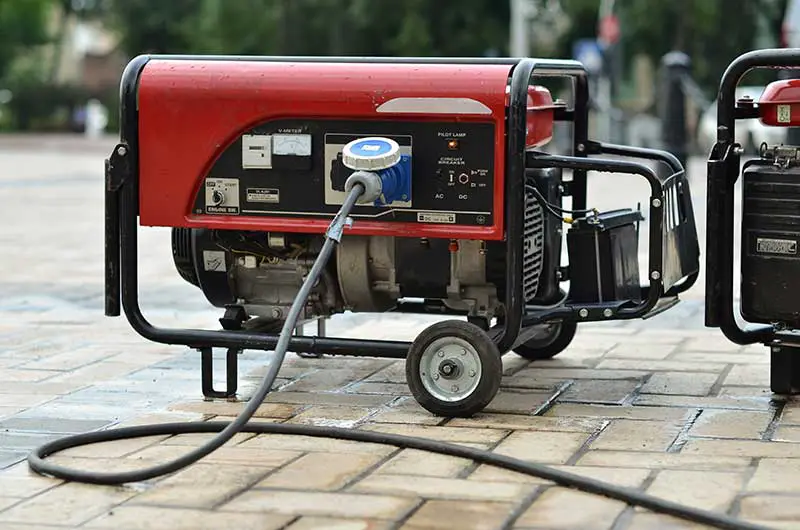A generator is an essential device that provides a reliable source of power during outages, ensuring that essential appliances and devices continue to function. Portable generators are a convenient solution for those who need a bit of extra power on the go, while standby generators are larger units typically installed outside a home that automatically turn on when the power goes out and provide a continuous supply of power.

When it comes to power outages, it’s safe to say they can be quite the nuisance. Suddenly finding yourself without electricity can be a real inconvenience and disrupt your daily routine. But fear not, for a generator is the answer to all your problems. These devices provide a reliable source of power during outages, ensuring that your essential appliances and devices continue to function. However, with so many options available on the market, choosing the right generator can be a bit of a conundrum. Which is why I’ve created this guide to assist you in navigating the different types of generators, including their pros and cons, as well as recommended brand names and why you would choose them.
Portable Generators
Portable generators are a convenient solution for those who need a bit of extra power on the go. They’re smaller units that can be easily moved around and used for a variety of purposes. They’re ideal for camping trips, tailgating parties, or powering tools on job sites. Portable generators typically have a lower output and aren’t hardwired into a home’s electrical system. They’re usually fueled by gasoline and have a pull-start or electric start feature. Portable generators are typically more economical than standby generators and are a great option for those on a budget.
One of the most reputable and durable portable generator brands on the market is Honda. Honda generators are known for their longevity and performance. They offer a range of portable generators with outputs ranging from 1000 watts to 9000 watts. Honda generators feature advanced inverter technology, which provides stable, clean power for sensitive electronics, such as smartphones and laptops. Additionally, Honda generators are fuel-efficient, making them a great option for those who plan to use them for extended periods of time. The Honda EU2200i is a personal favorite and I highly recommend it for its fuel efficiency, low noise, and high-quality power output.
Another great option for portable generators is Yamaha. Yamaha generators are known for their quiet operation, making them a great choice for camping and tailgating. They offer a range of portable generators with outputs ranging from 1000 watts to 7000 watts. Yamaha generators feature advanced inverter technology, which provides stable, clean power for sensitive electronics. They also have a fuel gauge that allows you to easily monitor the fuel level, so you never have to worry about running out of fuel unexpectedly. The Yamaha EF2000iSv2 is another great option and I highly recommend it for its quiet operation and fuel efficiency.
Positives and negatives of a portable generator
Positives:
- Affordable
- Small and easy to transport
- Can be used for various purposes
- Generally powered by gasoline
- Some models feature advanced inverter technology for stable and clean power
- Some models are fuel-efficient
Negatives:
- Lower output compared to standby generators
- Not hardwired into a home’s electrical system
- May require frequent refueling
- Some models can be loud
- Not designed to run for long periods of time
Standby Generators
Standby generators, on the other hand, are larger units typically installed outside a home. They’re usually fueled by propane or natural gas and are connected to a home’s electrical system. These generators automatically turn on when the power goes out and provide a continuous supply of power. They’re typically more costly than portable generators, but provide a higher output and are more dependable. Standby generators are a great option for those who experience frequent power outages or have a large home with many appliances and devices that need to be powered during an outage.
One of the most reputable and dependable standby generator brands on the market is Generac. Generac offers a wide range of standby generators with outputs ranging from 8,000 watts to 22,000 watts. They feature a robust steel enclosure and advanced power management that ensures your appliances and devices are powered during an outage. Additionally, Generac standby generators are easy to install and maintain, and they come with a 5-year limited warranty for added peace of mind. The Generac 7042 is a top pick and I highly recommend it for its powerful output and easy maintenance.
Another great option for standby generators is Cummins. Cummins offers a range of standby generators with outputs ranging from 8,000 watts to 48,000 watts. They feature a durable aluminum enclosure and advanced power management that ensures your appliances and devices are powered during an outage. Additionally, Cummins standby generators are easy to install and maintain, and they come with a 5-year limited warranty for added peace of mind. The Cummins RS20A is a great choice and I highly recommend it for its powerful output, advanced power management, and easy maintenance.
When choosing a generator, it’s important to consider the power output you need. Portable generators usually have a lower output, usually less than 7,000 watts, while standby generators can have an output of up to 48,000 watts. It’s also important to consider the fuel source. Portable generators are usually powered by gasoline, while standby generators can be powered by propane or natural gas.
Another important factor to consider is the frequency of power outages in your area. If power outages are recurrent in your area, a standby generator may be a better option as it will automatically turn on when the power goes out and provide a continuous supply of power. However, if power outages are rare, a portable generator may be a more cost-effective option.
It’s also crucial to consider the safety precautions when using a generator. Always make sure to use a generator in a well-ventilated area, never use a generator indoors or in a garage, and never plug a generator into a wall outlet. It’s also important to follow the manufacturer’s instructions for proper operation and maintenance to ensure safe and reliable performance. This means reading the manual, performing regular maintenance, and having a licensed electrician handle any installation needs.
Positives and negatives of a stanby generator
Positives:
- High output
- Automatically turn on during power outages
- Provide a continuous supply of power
- Generally powered by propane or natural gas
- Some models feature advanced power management
- Some models are easy to install and maintain
Negative:
- More expensive than portable generators
- Larger and typically installed outside a home
- May require a licensed electrician for installation
- May require regular maintenance
- Not as versatile as portable generators
In conclusion, a generator can be a valuable addition to any home, providing power during outages and making life more comfortable. There are many options available, from portable to standby generators, so it’s important to consider your specific needs and budget before making a decision. Brands such as Honda, Yamaha, Generac, and Cummins are known for their durability and dependable performance, and are a great option for any home. Remember to always prioritize safety and follow the manufacturer’s instructions for proper operation and maintenance to ensure a reliable and long-lasting performance of your generator. Investing in a generator is a smart move, it will give you peace of mind knowing that you have a reliable source of power during any power outages. Don’t let power outages disrupt your daily routine, get a generator and continue to live life comfortably.
